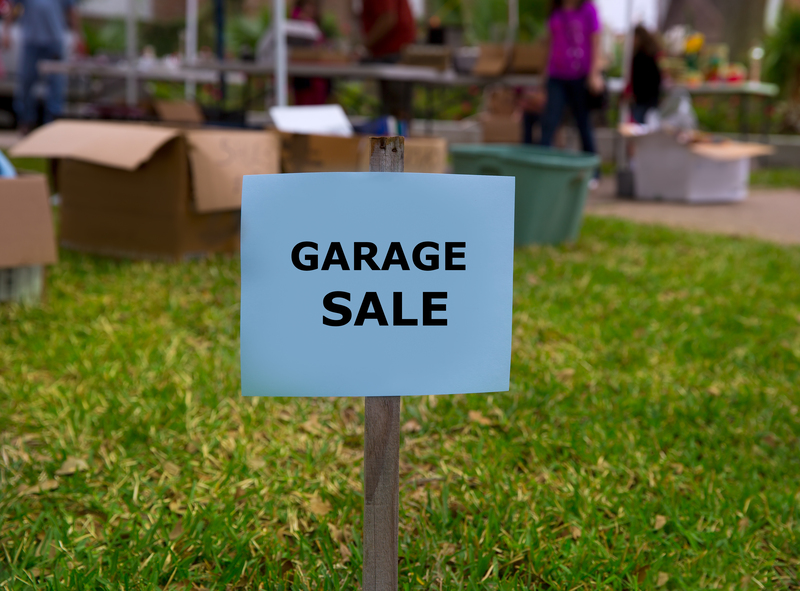In the face of escalating environmental concerns, adopting eco-friendly practices is no longer just a noble notion - it's an imperative. Eco-conscious living begins right at home, and a great way to start is by implementing green waste solutions that not only reduce your carbon footprint but also enhance the health of the planet. Below, we explore ten sustainable waste management strategies that can help you make a significant impact.
1. Composting Your Way to a Greener Tomorrow
Composting is a simple yet powerful way to reduce household waste while enriching the soil. By converting organic waste into a nutrient-rich resource, you're offering a sustainable alternative to chemical fertilizers.
Benefits of Composting:
- Reduces landfill waste and greenhouse gas emissions
- Improves soil health and fertility
- Supports soil biodiversity and health
- Enhances plant growth

2. Implementing a Home Recycling System
Setting up a recycling system at home is an effective green waste solution that significantly decreases the amount of refuse sent to landfills.
Steps to Start Recycling:
- Educate yourself on your local recycling guidelines
- Segregate materials like paper, plastic, glass, and metal
- Invest in recycling bins and label them accordingly
- Advocate for recycling within your community
3. Upcycling: Giving New Life to Old Items
Upcycling is a creative way to transform waste materials into new, useful products. This method not only diverts waste from landfills but also encourages artistic expression and innovation.
Upcycling Ideas:
- Convert old clothing into fashionable accessories
- Transform glass jars into beautiful vases or storage containers
- Create furniture from reclaimed wood or pallets
- Craft art pieces from discarded materials
4. Embrace Zero-Waste Shopping
Adopting zero-waste shopping habits can greatly reduce the amount of disposable waste produced by single-use products.
Tips for Zero-Waste Shopping:
- Carry reusable bags, jars, and containers
- Opt for bulk purchases to minimize packaging
- Purchase products from companies with green practices
- Choose items with minimal or no packaging
5. Participating in Community Clean-Ups
Community clean-up events are not only excellent for the environment, but they also foster community spirit and awareness about waste management.
How to Get Involved:
- Search for local clean-up events in your area
- Organize a clean-up event with friends or neighbors
- Collaborate with local organizations to maintain public spaces
6. Educating Yourself and Others
Knowledge is power when it comes to sustainability. Educating yourself and your community about the impact of waste and the importance of green solutions can lead to more informed choices.
Resources for Education:
- Attend workshops and seminars on waste management
- Read articles and books on eco-friendly practices
- Follow sustainability influencers and organizations online
- Share your knowledge with family and friends
7. Opting for Environmental-Friendly Packaging
Choosing items with eco-friendly packaging reduces the waste generated by single-use plastics and non-biodegradable materials.
Alternatives to Traditional Packaging:
- Biodegradable materials
- Recyclable and reusable packaging
- Plant-based plastics
- Minimal or no packaging options
8. Engaging in Food Waste Reduction
Food waste is a major environmental issue. By making conscious choices to reduce food waste, you can conserve resources and lower the strain on waste management systems.
Strategies for Food Waste Reduction:
- Plan meals and create shopping lists to avoid over-purchasing
- Use leftovers creatively to minimize waste
- Compost food scraps rather than discarding them
- Support businesses that donate excess food to those in need
9. Choosing Renewable Energy Sources
Integrating renewable energy solutions in your home not only reduces waste but also decreases reliance on non-renewable resources.
Renewable Energy Options:
- Solar panels for clean electricity
- Wind turbines for harnessing wind energy
- Geothermal systems for sustainable heating and cooling
- Hydroelectric power systems

10. Supporting Circular Economy Initiatives
The circular economy aims to keep resources in use for as long as possible, recovering and regenerating products and materials at the end of each service life.
How to Support Circular Economy:
- Purchase products designed for reuse and recycling
- Invest in companies implementing circular business models
- Advocate for policies that support waste reduction and material recovery
- Engage with community projects promoting sustainability
Conclusion
Embracing sustainability through these green waste solutions is both practical and essential as we work towards a healthier planet. Each small change contributes to the larger movement of reducing our environmental impact and fostering a sustainable future. By incorporating these practices into your daily life, you can play a pivotal role in creating positive change and encouraging others to do the same. Let's commit to protecting our environment and ensuring a greener tomorrow for generations to come.